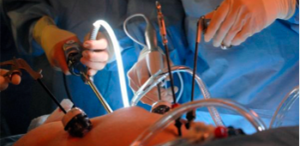
Contrary to common misconceptions, pregnancy after bariatric surgery is typically very safe. Bariatric surgery can lower the risk of complications associated with maternal obesity, such as hypertension and gestational diabetes, and it can even increase your chances of becoming pregnant. Dr. Liza María Pompa González at LIMARP can perform one of many bariatric procedures available at her Tijuana, Mexico, practice to pave the way for a healthier pregnancy.
Bariatric Surgery Can Boost Your Fertility
Research shows that bariatric surgery can increase your chances of conceiving and carrying to term by:
- Resolving metabolic and reproductive abnormalities in women with PCOS (polycystic ovary syndrome)
- Lowering the chance of maternal complications during pregnancy and labor
- Stabilizing birth weights
- Improving neonatal outcome
Bariatric surgery can positively impact your fertility by overcoming certain infertility factors and making it easier to become and stay pregnant.
Achieving a Stable Weight
Following bariatric surgery, your body changes considerably as nutritional and caloric uptake is inhibited and weight loss occurs. Doctors recommend that women wait at least 18 months before trying to conceive in order to protect themselves and their babies from possible nutritional deficiencies. By 18-24 months after surgery, a woman’s weight should be stabilized sufficiently to avoid most concerns.
Monitoring Your Nutrition
Even after this recommended period has passed, women will still need to be monitored to make sure they are meeting their nutritional needs. Pregnant women who have had bariatric surgery may be at risk of suffering deficiencies in vitamins D and B12, calcium, and iron. Less commonly, patients may have problems with necessary fat and protein absorption. Women who have undergone bariatric surgery should check with their doctor about nutritional testing, as well as dietary requirements and supplements.
Likelihood of Cesarean Sections
Pregnant women who have previously had bariatric surgery have a higher chance of requiring a cesarean section, more commonly known as a C-section. While the reason for this is not clear, women should discuss the issue with their OB-GYN, especially if they would prefer a vaginal delivery.
Breastfeeding following Bariatric Surgery
Bariatric surgery patients can safely breastfeed after giving birth. However, the issue of potential nutritional deficiencies continues to exist after delivery, and should be reviewed with your doctor or lactation consultant. Similar to during your pregnancy, additional testing may be performed and dietary guidelines or supplements may be recommended to ensure vital nutrients are supplied to you and your growing baby.
Returning to a Healthy Weight
Many women worry that they will be unable to return to a healthy weight quickly. Returning to healthy eating and exercise should be sufficient to minimize weight gain, however, you may also benefit from meeting with a dietician or other specialist.
Considering Bariatric Surgery before Motherhood?
Bariatric surgery and motherhood are two events that can profoundly change your life. It is important that patients are educated in order to protect their health and the health of their baby. To schedule a consultation with Dr. Pompa and learn more, message our office today. You can also call our practice at (619) 270-8823.


